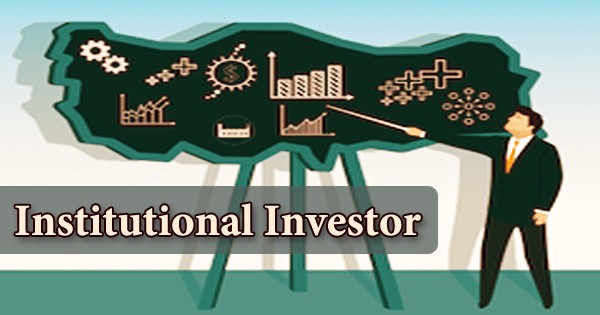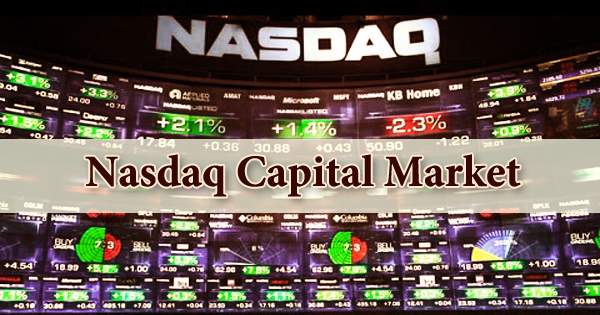An institutional investor is a legal organization that pools funds from a number of individuals in order to invest in a variety of financial instruments and benefit from the process. Commercial banks, central banks, credit unions, government-linked enterprises, insurers, pension funds, sovereign wealth funds, charities, hedge funds, real estate investment trusts, investment advisors, endowments, and mutual funds are all included. To put it another way, an institutional investor is a company that invests on behalf of its shareholders. Institutional investors frequently purchase and sell large blocks of stocks, bonds, and other securities, earning them the moniker “Whales on Wall Street.”
Working organizations that put overabundance capital in these sorts of resources may likewise be remembered for the term. An institutional investor purchases, sells, and overseas stocks, bonds, and other speculation protections for the benefit of its customers, clients, individuals, or investors. By exercising voting rights in their investments, activist institutional investors can affect corporate governance. Endowment funds, commercial banks, mutual funds, hedge funds, pension funds, and insurance corporations are the six categories of institutional investors.
Institutional investors apply a critical effect available, both in a positive and negative way. Albeit institutional investors give off an impression of being more modern than retail financial backers, it stays indistinct if proficient dynamic venture chiefs can dependably upgrade hazard changed returns by a sum that surpasses charges and costs of speculation the board, because of issues with restricting office costs. Because it is considered that institutional investors are more educated and capable of protecting themselves, they are subject to fewer protective laws than regular investors.
Institutional investors are entitled to special consideration and cheaper costs. They are also subject to less safeguards than people since they are more qualified merchants and so better equipped to defend themselves. Following the financial crises of the early twenty-first century, institutional investors’ potential in infrastructure markets has become more recognized. o defend themselves. Institutional investors buying and selling of significant positions can cause supply and demand imbalances, resulting in price swings in stocks, bonds, and other assets.
In the eighteenth century, private investors pool their assets to seek after lottery tickets and mixed bag shares permitting them to spread danger and become the absolute soonest speculative establishments known in the West. Institutional financial backers have the assets and specific information for broadly investigating an assortment of speculation openings not open to retail investors. Institutions execute a huge percentage of transactions on major exchanges and have a significant effect on the pricing of securities since they move the greatest positions and are the largest force behind supply and demand in securities markets.
Institutional investors, often known as market makers, have a significant impact on the pricing dynamics of many financial products. Institutional investors may be excluded from some securities regulations due to their expertise. The presence of major financial companies on the market has a favorable impact on the entire economy. The activism of institutional investors as shareholders is considered to promote company governance since financial market monitoring helps all owners.
Institutional investors are key sources of money in financial markets because they act as middlemen between individual investors and businesses. Because institutional investors have the power to affect markets, retail investors frequently examine institutional investors’ regulatory filings with the Securities and Exchange Commission (SEC) to determine which securities they should buy on their own. Furthermore, institutional investors have access to and knowledge of a wide range of investment products that are not available to ordinary investors.
Institutional investors, by pooling constituents’ assets, potentially lower the cost of financing for entrepreneurs while diversifying component portfolios. To put it another way, some investors try to imitate institutional purchasing by adopting the same positions as so-called “smart money.” The following are the characteristics of institutional investors:
- It’s always a legal organization, and it’s crucial to remember that an institutional investor is a company that manages a fund (such as a mutual fund), not the fund itself.
- An institutional investor’s activity is founded on professionalism, and it manages assets in accordance with its customers’ interests and aims.
- An institutional investor always manages a significant number of funds.
Institutional investors commonly try not to obtain a high level of organization proprietorship since performing such a demonstration might abuse protections laws. An individual can put resources into any resources that are accessible to them on the trade. Institutional investors can likewise purchase resources yet is situated more on long haul contributing. Institutional investors are the big fish on Wall Street, and their huge block transactions have the ability to impact markets. The group is thought to be more intelligent than the retail population, and it is frequently subject to less regulatory monitoring.
Investors, unlike persons, do not have an accumulation phase (active work-life) followed by a consuming phase (retirement), and they do not die. Insurance firms vary from other institutional investors in this regard since they cannot predict when they will have to reimburse their consumers. Due to business prospects, institutional investors have access to significant operational operations. Large organizations can have access to numerous assets that are not available to private persons thanks to their significant resources and license.
Information Sources:
















